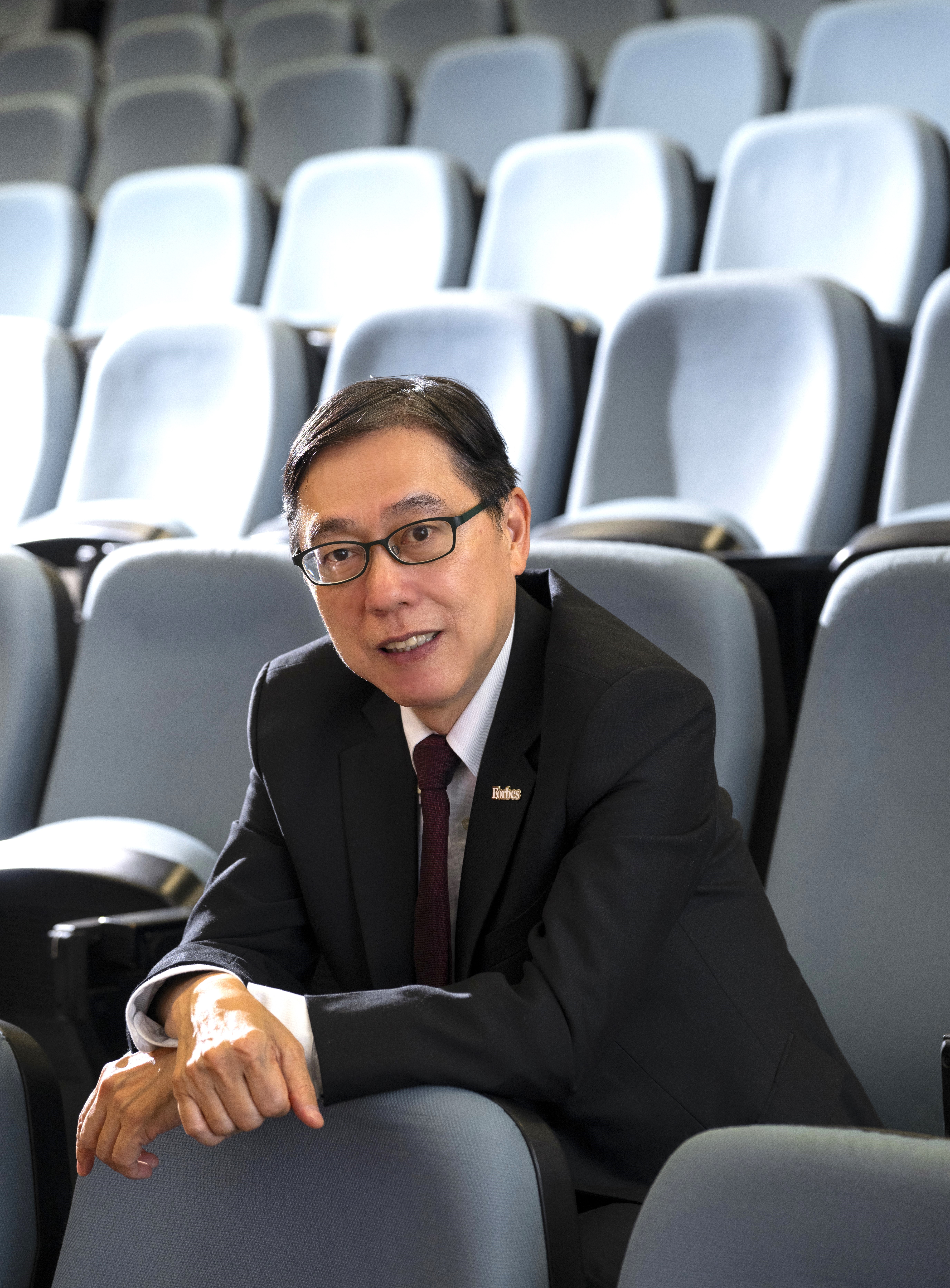
Peter Hung (80/CC/Marketing), currently President of Forbes Licensing and Branded Ventures, built his longstanding career in marketing. He believes that marketing is an interdisciplinary field that requires knowledge beyond the subject itself to foster innovation and creativity. During his discussion, he emphasised, "One cannot just focus on passing exams – the world is constantly evolving. To thrive in this dynamic society, lifelong learning and self-improvement are essential." Alumnus Hung also advocates for hands-on experience, suggesting that entrepreneurship is the best way for university students to broaden their perspectives. "By stepping into uncharted territory, students can expand their horizons, discover new possibilities, and cultivate the skills vital for navigating the ever-evolving challenges of the future," he said with a smile.
Growing up, Peter Hung never had a clear vision of his future career. He said, "As a child, I was more focused on playing, especially table tennis. During my secondary school years at St. Joseph's College, I had the opportunity to train alongside classmates on Hong Kong table tennis team, one of whom had a father who was the chairman of the Hong Kong Table Tennis Association. We trained daily with members of Hong Kong table tennis team from other schools for at least two hours and participated in numerous interschool competitions across different levels. Career planning was the last thing on my mind; even choosing a university major was not something I had considered."
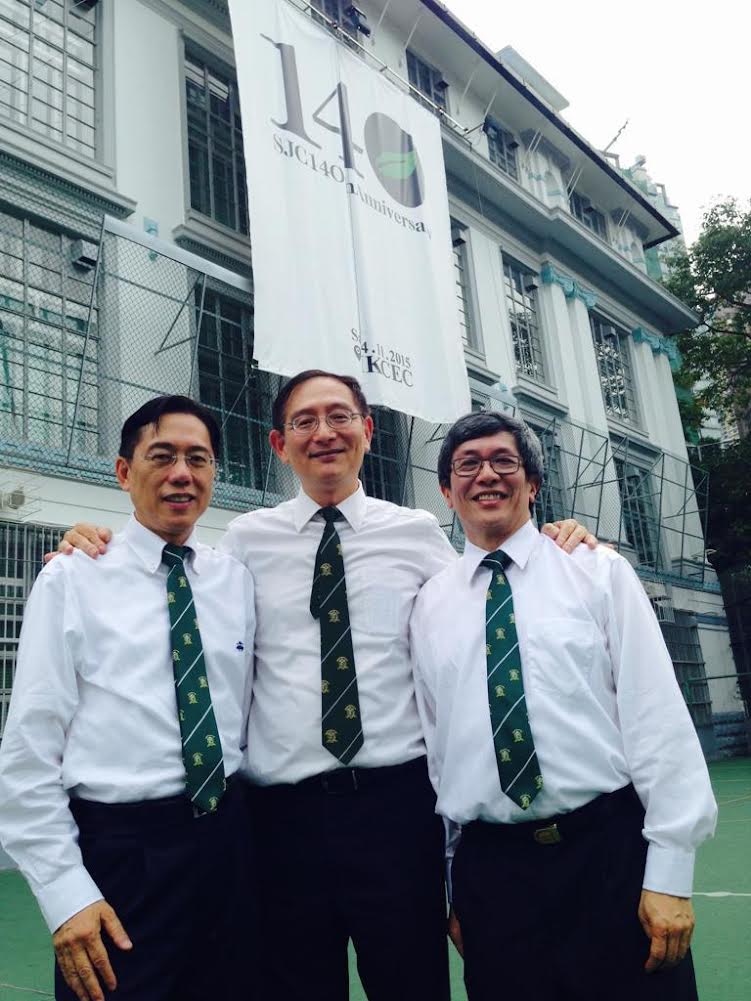
In his penultimate year of secondary school, alumnus Hung pursued science and developed a keen interest in biology. He initially contemplated studying medicine at university, but upon realising the sheer volume of textbooks, each spanning three to four inches thick, he decided it was not the right path for him. He explained, "At that time, there were only two university options: The Chinese University of Hong Kong (CUHK) and The University of Hong Kong (HKU). While St. Joseph’s College had a tradition of students aiming for HKU, CUHK required only one year of matriculation courses instead of two. I was eager to take various tests, so I sat for CUHK’s entrance exam in Form 6. I was accepted into CUHK and faced a difficult decision: should I take the offer at that time or finish Form 7 and take a chance at HKU? CUHK was not exactly a popular choice at that time, but I thought both institutions were great universities and decided to seize the opportunity directly."
As for his choice of major, it was Peter's cousin who suggested he study marketing. He recalled, "She told me that for a young man, entering the business world would be a solid path. Plus, I thought marketing would not require much memorisation, so I chose it without any hesitation." At the same time, one of his interests helped him lay a foundation for becoming a trailblazer in marketing. He added, “I had a strong interest in mathematics, which led to me minor in computer science. This combination was relatively rare at the time. While marketing encouraged creative thinking, computer science required discipline and precision. Balancing both fields allowed me to develop a unique and specialised ability to analyse marketing data using computing and statistical methods. Long before the era of big data, CUHK's training had already given me an edge." This forward-thinking approach would later shape his career, allowing him to bridge the gap between technology and marketing.
During his four years at Chung Chi College, Peter Hung lived in the temporary quarters, Ying Lin Tang, and Ming Hua Tang, spending most of his time on campus. Reflecting on his four-year university experience, he described it as an indelible and exciting chapter of his life. He said, "University gave me the freedom to explore and allocate my time, whether in academics or extracurricular activities. Beyond studying, I continued playing table tennis and even served as the captain of the CUHK table tennis team. We remained undefeated in both competitions organised by the Hong Kong Federation of Students and among tertiary institutions. I even had the opportunity to compete in Taiwan, all of which became some of my happiest memories."
For Peter, table tennis was more than just a sport – it was a training ground for problem-solving. He elaborated, "Training in table tennis has become valuable in my career. Unlike team sports such as football, table tennis is a highly individualistic sport. One must adapt to changing circumstances, analyse the opponent's strategy, and make split-second decisions. While coaches and teammates provide guidance, success ultimately depends on one's ability to read the opponent and make the right moves under extreme pressure. This experience has significantly shaped my decision-making skills."
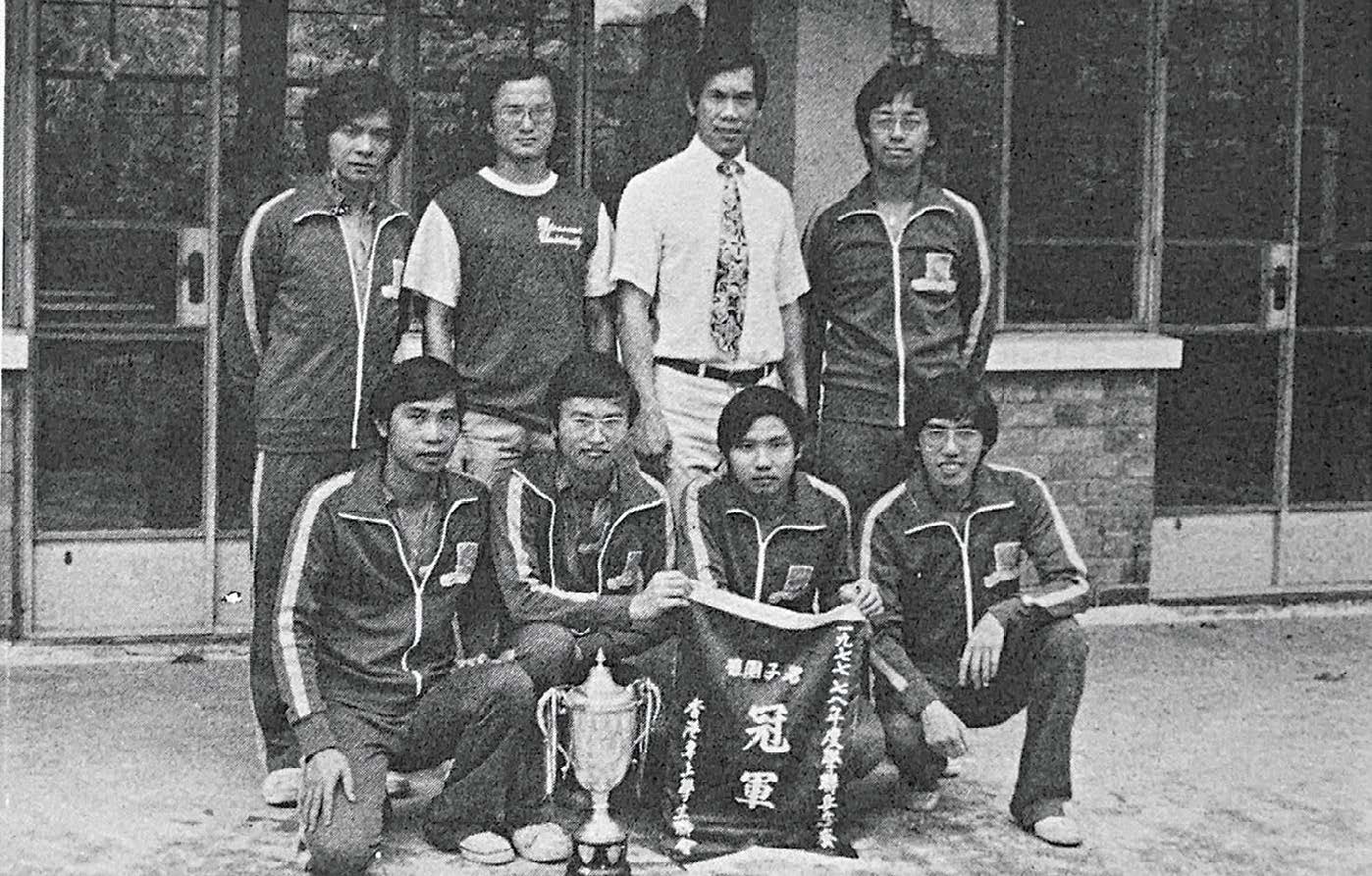
Beyond sports, Peter also took on leadership roles. He said, "I also served as the president of both the Chung Chi College Student Union and the Business Administration Society of the Chung Chi College. These experiences helped me develop organisational skills, which made my university life not only enriching and fruitful but also incredibly busy. I made the most of my time at university, participating in as many activities as I could. It was truly an exciting and fulfilling experience."
As graduation approached, Peter had considered lingering at CUHK for further studies, so he consulted Professor Kam-hon Lee. Peter said, "Professor Lee is a renowned expert in marketing, and I had taken every course he taught in the subject, so I was quite acquainted with him. He told me that I had already learnt everything he could offer. At that time, marketing was not a mainstream discipline in Hong Kong, and I had already read most of the available books about marketing in the library. If I wanted to deepen my expertise, I needed to look elsewhere, and the US, which is considered the birthplace of the marketing field, was the obvious choice. So, I decided to apply there." Peter applied to Northwestern University and the University of Chicago, receiving offers from both institutions. He said, "Northwestern was well known as a leader in marketing, and Professor Lee is an alumnus. It seemed like the logical choice. However, after studying marketing for years, I wondered if I should broaden my perspective by exploring other areas of business. This led me to choose the University of Chicago, which has a strong focus on economics and finance, particularly in quantitative finance. Chicago tends to emphasise the theoretical, academic and quantitative aspects of business. Given my minor in computer science, this decision aligned perfectly with my interests."
Alumnus Hung quickly realised that he had made the right choice. On his first day of class in the US, he immediately experienced the distinctive teaching approach at the University of Chicago. He recalled, "My first course was financial accounting. Instead of lecturing, the professor handed out an actual company audit report and asked us to analyse the numbers and share our insights. The professor then guided us in understanding the ins and outs of a company by examining its numbers. This method, 'learning by doing', was completely different from my experience in Hong Kong. It taught me to interpret data, think critically, and make informed decisions. I found that the US education system emphasised flexibility and provided abundant resources for students to pursue their goals." The learning environment encouraged independent thinking and problem-solving, which left a lasting impact on Peter. Years later, he reflected, "I was invited back to CUHK Business School for its 60th anniversary celebration, where I had a discussion with Professor Lee about the University's future direction. We both agreed that the most valuable skill for students is problem-solving. Learning is a lifelong endeavour, and even in my current role, I continue to acquire knowledge that enhances my ability to identify, understand and navigate the myriad situations I encounter in an ever-changing world. It is essential, therefore, for students to 'learn to learn', i.e., learning how to learn, during their university years. This approach equips them with the skills to develop a structured framework for identifying and addressing problems, enabling them to adeptly address challenges in any environment."
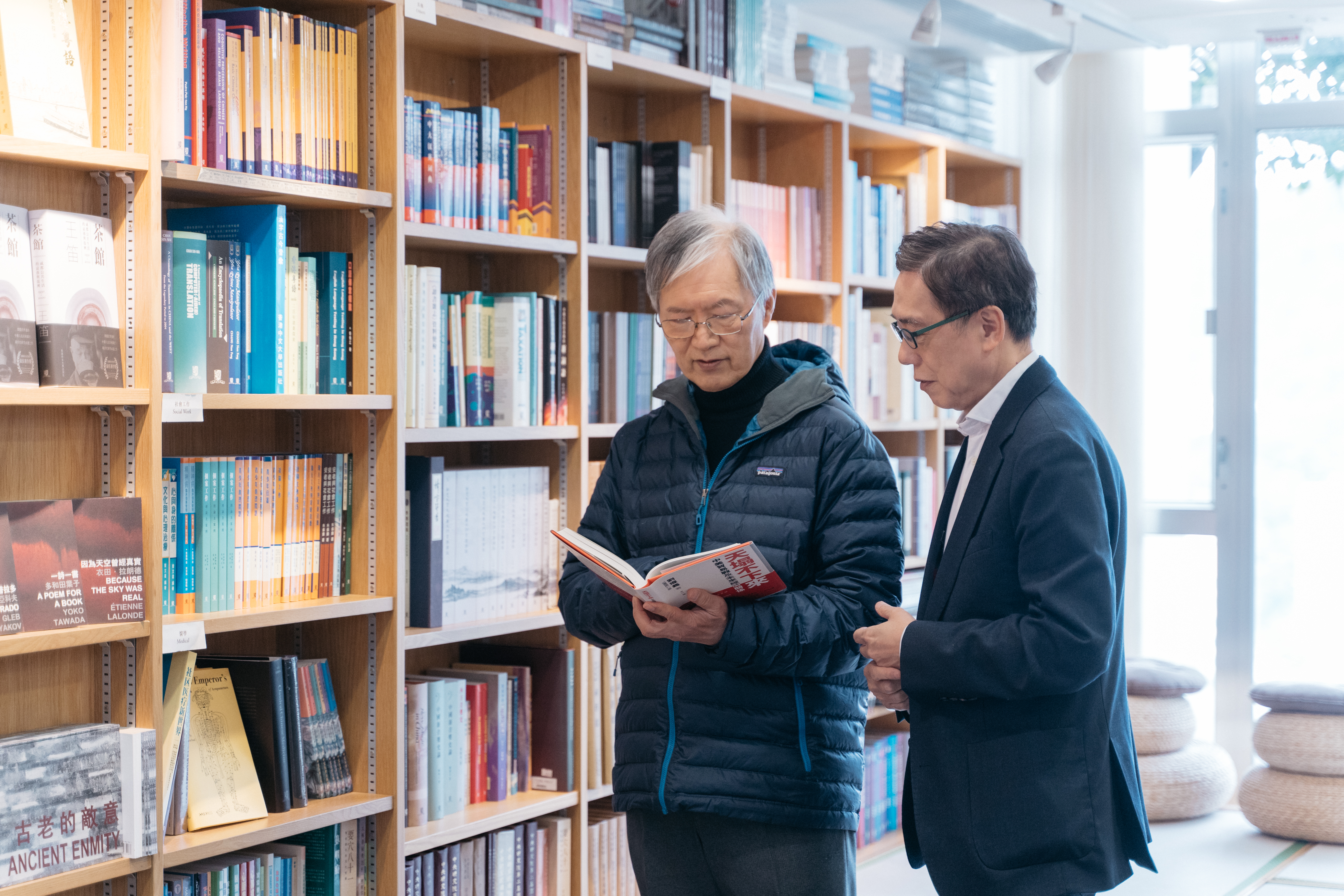
While about 90% of University of Chicago graduates tend to pursue careers in finance, Peter Hung's passion remained firmly rooted in marketing. His career began with roles at fast-moving consumer goods (FMCG) companies such as Johnson & Johnson, where he focused on marketing and promotion. However, it was his later move to AT&T that truly broadened his global perspective. He said, "At AT&T, I was responsible for managing international operations, particularly in helping the company break into the Asia-Pacific market. This role exposed me to the telecommunications and media sectors in ways I had not experienced before. I even transitioned to a Silicon Valley startup to delve into the technology market. Eventually, I was invited to return to Hong Kong by a telecommunications firm, where I spent over a decade, before joining Forbes, where I have been ever since."
At Forbes, Peter’s primary focus is on identifying business opportunities outside of the US – a role he likens to that of an incubator. He said, "We leverage the Forbes brand to explore new ventures in both media and non-media sectors. On the media side, our emphasis is on magazines and websites, currently reaching close to 80 countries. In the non-media arena, our interests span education, real estate, travel, and talent recruitment, among others. Although our portfolio appears to be broad, the core strategy focuses on serving high-net-worth individuals and providing professional support to C-level executives to help them succeed."
He further explained the essence of the Forbes brand: success. "Every year, we publish over a hundred rankings and lists with the mission to 'celebrate those who make it and inspire those who want to make it'. This year marks Forbes' 108th anniversary. On our centennial, when someone asked me what Forbes would look like a century from now, I replied that it would undoubtedly be even more diversified. We must incubate various projects now to build a solid foundation for the future. I am not afraid of failure; what I fear most is stagnation. If others move forward while I remain static, failure is inevitable," he said.
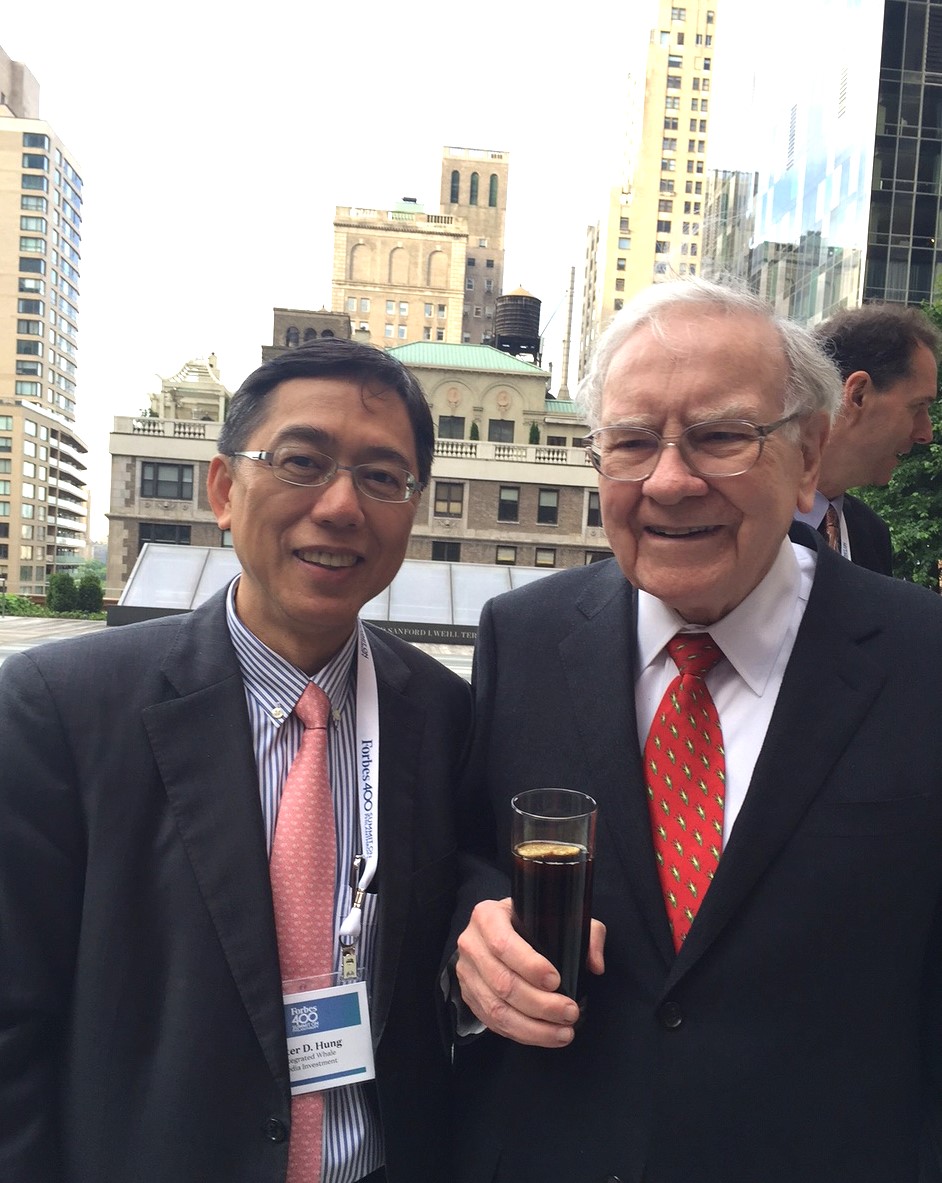
To succeed in today's fast-changing market, Peter emphasises the need for innovation. Those who cling to outdated practices and refuse to evolve will ultimately be left behind. He explained, "Over a decade ago, we were still producing thick paper magazines. When the internet swept in, we quickly pivoted to a contribution model, inviting professionals from diverse fields to serve as columnists. This strategy diversified our content and transformed our platform into one that now boasts 3,000 contributors. Naturally, impressive content attracts traffic, and increased traffic brings advertising opportunities. This early transformation has been key to our success, and even today, our competitors have yet to match our scale."
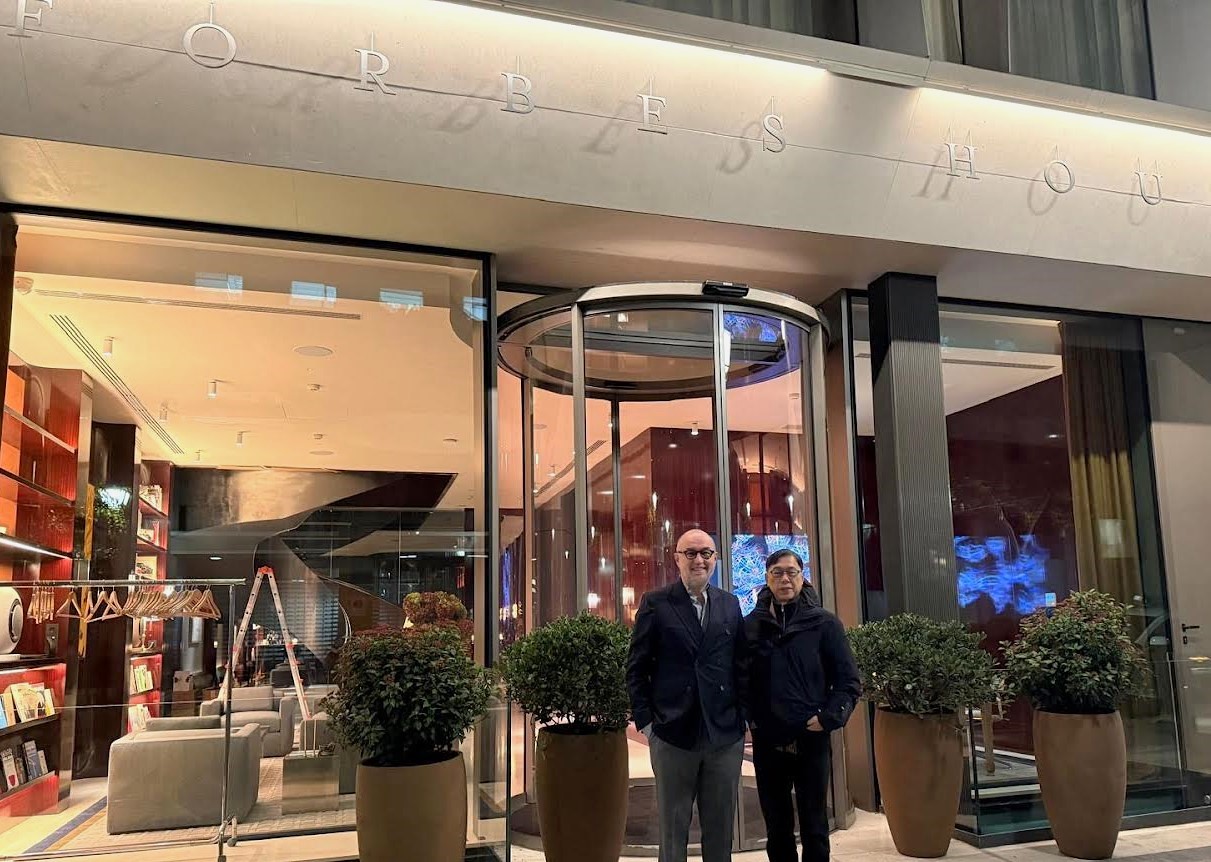
Having worked for over 25 years in large enterprises in both the US and Hong Kong, alumnus Hung believes that the workplace cultures in these two regions are markedly different. He explained, "Hong Kong is an opportunistic society. When opportunities arise, everyone jumps on board, which means things move very quickly. This rapid response is a key factor in Hong Kong's success. In contrast, the US takes a different approach. Due to high opportunity costs, every decision is carefully considered, and tasks are meticulously divided. Unlike in Hong Kong, where one person may juggle multiple roles, success in the US is achieved through teamwork. Although the pace may be slower, this method nurtures specialists with deep subject matter expertise. In other words, collaboration and teamwork are vital to success in the US workplace. Ultimately, whether one succeeds through individual prowess or through collaboration depends on the environment and culture, with neither approach being inherently superior."
Beyond work practices, management styles in the two regions also differ significantly. Peter said, "In Hong Kong, which is more closely aligned with Asian culture norms, managers tend to adopt a top-down approach, where a single directive is expected to be followed by everyone. This contributes to swift execution. On the contrary, the management philosophy in the US is to get things done through people. Here, success depends on motivating and coordinating a diverse team to work together effectively."
In recent years, the public has engaged in lively discussions about whether artificial intelligence (AI) will replace human jobs. Peter believes that it is not a straightforward issue. He explained, "Take the media industry, which I know best, as an example. The internet has undeniably revolutionised the entire sector. While some claim that AI is the next disruptive force, I think it is still too early to tell. Sure, there are instances of articles being written by robots, but consider our interview today – that is something AI simply cannot replace. Similarly, many fields, like plumbing, are unlikely to be replaced by AI. Instead of obsessing over whether AI will take over human jobs, we should focus on how best to utilise it. I see AI as a tool that helps me analyse and understand which audiences are drawn to specific content and which material keeps readers engaged longer. By leveraging AI to tap into new resources and develop innovative products, we can enhance overall efficiency. That is the real challenge we should address."
Peter Hung further acknowledges that AI's impact will be the most profound on the next generation. He stated, "I believe that, for future students, simply studying will not be enough. What really matters are the skills one possesses. Just last year, about 30% of Harvard Business School's new graduates could not find employment, which speaks volumes about the current job market. AI literacy is poised to become essential within the next two to three years, meaning universities must integrate technology across various disciplines. While CUHK students are outstanding, they often lack strong communication and practical skills needed for the workplace. In my view, students need to experience the world beyond academia. Universities should collaborate more closely with the private sector, offering students broader exposure and hands-on experiences. For example, when Forbes hosted the Under 30 Summit Europe in Amsterdam, I coordinated with CUHK to send five students. They later told me it was an eye-opening experience, realising that there are countless possibilities beyond the classroom. If universities can take that extra step, I am confident that students’ horizons will expand considerably."
Published on CU Alumni Magazine Issue 121 by Alumni Affairs Office 2025
Read online: CU Alumni Magazine Issue 121 (Chinese Version Only)
PDF: http://www.alumni.cuhk.edu.hk/magazine/202503/pdf/CUAM_202503.pdf
ISSUU: http://www.alumni.cuhk.edu.hk/magazine/issuu/